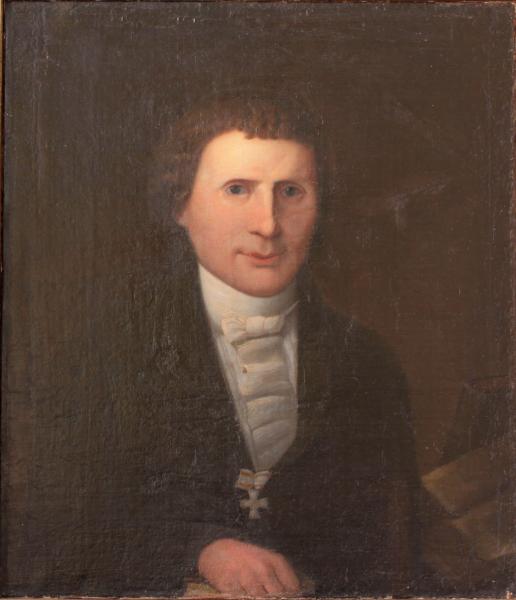Ludwig Rhesa
 Martin Ludwig Jedemin Rhesa}} (; 9 January 1776 – 30 August 1840) was a Lutheran pastor and a professor at the University of Königsberg in East Prussia. He is best remembered as publisher of Lithuanian texts. He was the last prominent advocate of the Lithuanian language in Lithuania Minor.
Martin Ludwig Jedemin Rhesa}} (; 9 January 1776 – 30 August 1840) was a Lutheran pastor and a professor at the University of Königsberg in East Prussia. He is best remembered as publisher of Lithuanian texts. He was the last prominent advocate of the Lithuanian language in Lithuania Minor. Orphaned at an early age, Rhesa was taken in by his distant relatives. Though interested in linguistics, he studied theology at the University of Königsberg as it provided a more secure employment after graduation. He became a military chaplain of the and participated in the Napoleonic Wars, including the French invasion of Russia and the Battle of Leipzig. In 1816, he resigned from the chaplaincy devoting the rest of his life to academics. He received doctorates in philosophy (1807) and theology (1819). In 1810, he became leader of the Lithuanian language seminar at the University of Königsberg. He revived the seminar and led it until his death, becoming an authority on the Lithuanian language.
Rhesa initiated a new revision to the 1755 Bible translation into Lithuanian which was published in 1816 and 1824. He worked diligently to correct translation errors and to improve the purity of the Lithuanian language (by, for example, replacing Germanisms with Lithuanian equivalents). Rhesa was the first to publish secular Lithuanian texts in Lithuania Minor, most important of which were the Lithuanian epic poem ''The Seasons'' by Kristijonas Donelaitis (1818) and a collection of 85 Lithuanian folk songs and their translations to German (1825). The collection became popular in western Europe and is considered the first study of Lithuanian folklore. These two publications were meant to showcase "creativity, richness and originality of spiritual culture" of the Lithuanian nation. Rhesa compiled an unfinished German–Lithuanian dictionary. He also published texts in German, including two poetry collections (1809 and 1825) and impressions from his travels during the Napoleonic Wars (1814). Provided by Wikipedia
1
2
3
4
